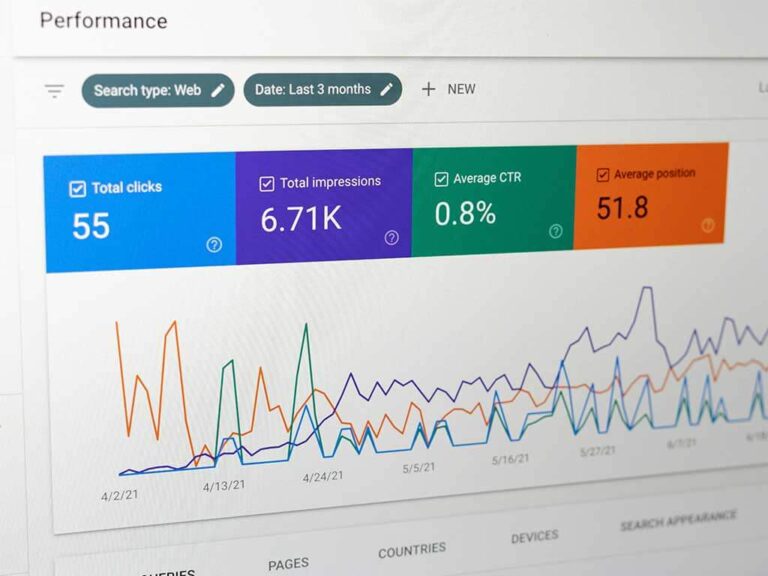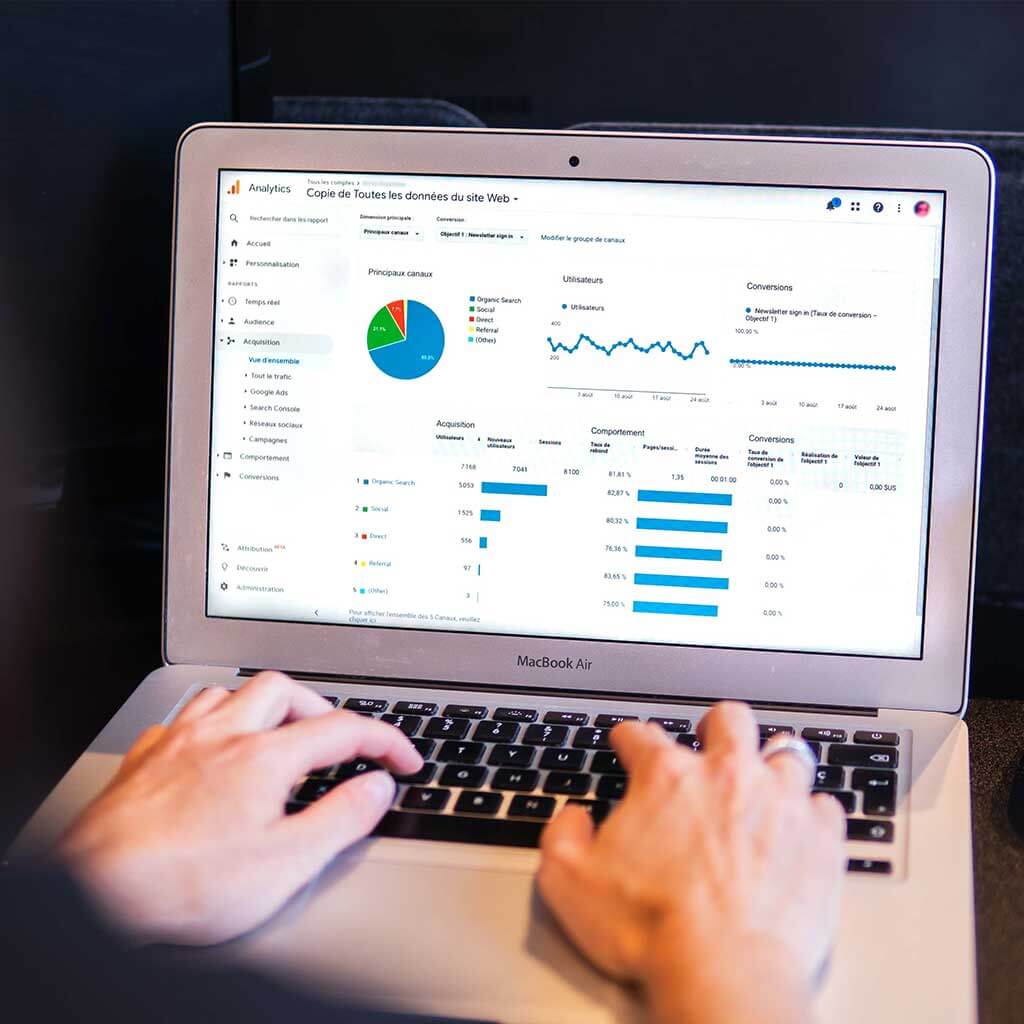What is Digital Marketing?
A Comprehensive Guide
Lost in the digital marketing maze? This guide is your GPS to understanding its power, types, and Unleash online success, one click at a time!
Table Of Content
In the dynamic landscape of today’s hyper-connected world, where the digital landscape constantly evolves, mastering the art of digital marketing is paramount for businesses aiming to thrive online. As consumers increasingly rely on the internet for information and services, establishing a robust online presence has evolved from a necessity to an absolute must.
As a matter of fact, it’s important to realize that success for businesses in reaching and engaging with their target audience hinges on their ability to adeptly navigate various digital channels—ranging from social media and email marketing to search engine optimization (SEO). in other words, the days of dusty phone books and one-size-fits-all advertising are long gone. Today, the web serves as our town square, and mastering its language is crucial for businesses not only to survive but to flourish.
So, what exactly is digital marketing? and how can businesses harness its potential for their own advantage?
Digital Marketing
In a nutshell, it’s the art and science of attracting, engaging, and converting customers through online channels. It’s about using the internet and its tools to tell your brand story, build relationships, and ultimately drive sales. Covering all the bases, from ranking high on search engines to building communities on social media and nurturing leads with email campaigns
Digital Marketing History
ARPANET
The first network that would eventually evolve into the internet, sends its first message
The Invention of Email
The Invention of Email opens up new possibilities for communication and marketing
In-game Advertising
The first in-game advertising appears marking a gaming shift toward marketing
Birth of the Internet
The internet’s birth transformed global communication and information access
HotWired
The first banner ad appears, marking the birth of online display advertising
The World Wide Web
WWW was launched, making the internet more accessible and opening up new opportunities
Archie
The first search engine was launched, marking the beginning of the (SEO) industry
Google has become the leading search engine, prompting businesses to optimize their websites for better ranking and visibility
WordPress
WordPress launched, making website creation and management accessible to businesses to build their online presence
Facebook is launched and became the world’s largest social media and social media marketing platform
IPhone
With the launch of the iPhone, a new era of mobile marketing dawned, changing the way businesses connect with consumers
Voice Search
The introduction of voice search was introduced by Google
GDPR
The General Data Protection Regulation came into effect across the European Union, giving consumers more control over their personal data
How Digital Marketing Works?
Think of digital marketing like a dynamic toolbox of online strategies to promote products and services to potential consumers, from defining targeted audience and understanding their online behavior to Utilizing various digital channels, such as social media, SEO, and email marketing, not to mention Crafting relevant content that adds value to your audience’s online experience, and The key is to tailor your strategies to your specific goals, target audience, and chosen channels.
73%
Customers are willing to spend more with a brand that has complete transparency online
66%
Marketers say they increased their company’s credibility through digital marketing tactics

Key Performance Indicators (KPIs) in Digital Marketing
Digital marketers rely on key performance indicators (KPIs) as essential benchmarks, and just like checkpoints on a map, KPIs offer valuable insights into whether they are progressing towards achieving goals like customer engagement, website traffic, or lead generation.
A customer engagement KPI might track website bounce rate, indicating how well you’re captivating visitors. In addition, a website traffic KPI could monitor unique visitors, revealing the effectiveness of your reach strategies. Furthermore, lead generation KPIs might measure form submissions or contact inquiries, showcasing your ability to convert interest into action.
As a result, monitoring these KPIs is crucial for digital marketers, to track the success of their strategies and make informed decisions for continuous improvement.
Website Traffic
Monitor the number of visitors to your website, providing insights into the overall reach and visibility of your online presence.
Click-Through Rates (CTR)
Assess the ratio of clicks on an AD to the number of times it was shown, offering insights into the relevance and appeal of your online advertisements.
Conversion Rates
Evaluate the percentage of website visitors who take desired actions, such as making a purchase or filling out a form, indicating the effectiveness of your conversion funnel.
Social Media Engagement
Measure likes, shares, comments, and other interactions on social media platforms to gauge audience engagement and the effectiveness of your social media content.
Return on Investment (ROI)
Calculate the return on investment from your digital marketing campaigns, considering the costs incurred versus the revenue generated, as a result ensuring profitability and efficiency.

”Business has only two functions- marketing and innovation”
Milan Kundera
The Unbearable Lightness of Being

Types of Digital Marketing
Navigating the dynamic realm of online engagement begins with a grasp of key digital marketing types. From SEO and social media to email campaigns and content marketing, each strategy plays a distinct role in building brand awareness and fostering customer connections. So, staying informed about these diverse approaches empowers businesses to craft effective online strategies aligned with their goals and target audiences.
Digital Marketing’s Impact on Society
Digital marketing has revolutionized the way we connect, consume, and engage with the world around us. But beyond the clicks, likes, and conversions, lies a complex web of societal impacts, both positive and negative. So, understanding these broader implications is crucial for responsible and ethical practices.
Connecting and Empowering
Digital marketing has become a powerful tool for fostering connections and empowering communities. Social media platforms, for example, break down geographical and cultural barriers, allowing businesses to connect with diverse audiences and even mobilize support for social causes. This power to connect empowers individuals and amplifies their voices, fostering a more inclusive society.
Misinformation and Privacy
The spread of misinformation, “fake news” and manipulative advertising tactics can threaten societal trust and democracy. So, businesses have a responsibility to combat these issues through fact-checking, promoting media literacy, and prioritizing transparency. Additionally, concerns around privacy, algorithmic bias and harmful content demand responsible data practices and fair treatment for all users
Shaping the Future
Digital marketing’s impact is evolving, and shaping it requires collaboration. Businesses must embrace responsible innovation, considering the societal implications of new technologies like AI. Partnering with non-profits organizations can lead to ethical guidelines and best practices. Ultimately, empowering individuals with critical thinking skills is key to navigating and building a brighter future.
To Summarize
From its fascinating history shaping society to its diverse toolbox of tactics, digital marketing is a powerful force in today’s world. This journey explored the core concepts, from understanding how it works with KPIs as guideposts to recognizing its impact on information access, individual empowerment, and industry shifts. Whether you’re diving into SEO to boost website visibility, leveraging social media for brand engagement, or exploring other channels like email marketing and content creation, remember – a holistic approach that delivers genuine value is key to unlocking the full potential of digital marketing, propelling your brand forward and leaving a positive mark on the ever-evolving digital landscape.
Key Learnings
- Holistic Harmony: Digital marketing is not a solo act, it’s an orchestra. Combine SEO, social media, email, content, and more to create a unified and impactful strategy.
- Data-Driven Decisions: KPIs are your guideposts, not just vanity metrics. Use data insights to track progress, optimize strategies, and maximize ROI.
- Tailor Your Toolkit: Understand your audience and choose the right channels (SEO, social media, email, etc.) to reach them effectively.
- Beyond Likes & Clicks: Focus on building genuine value. Create informative content, foster authentic connections, and deliver solutions, not just sales pitches.
- Information Amplifier:
- Individual Champion:
- Lifelong Learner: The digital landscape is dynamic, so stay informed about industry trends, platform updates, and changing consumer behaviors to adapt and thrive.
Your journey to online success starts here! Keep following our blog for valuable insights and get the latest in marketing trends.
Loved this post? Show it some love and share it!





